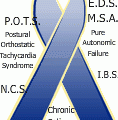Table of Contents
Why dysautonomia is often misdiagnosed? In the 19th century, there was a common clinical condition called neurasthenia. Why dysautonomia is often misdiagnosed? Formerly healthy and balanced individuals would certainly discover themselves unexpectedly incapable to operate because of a host of mystifying symptoms, typically consisting of tiredness, weak point, unusual discomfort that would go and come and also move from area to location, dizziness, various intestinal symptoms, as well as syncope. Why dysautonomia is often misdiagnosed? Medical professionals would not find anything to discuss these symptoms, so they were attributed to a “weak nervous system,” or neurasthenia.
Neurasthenia
Why dysautonomia is often misdiagnosed? Females with neurasthenia were frequently constrained to their beds, where they would either recover or eventually passaway. And while nobody recognized what created this condition, everybody, medical professionals and also nonprofessionals alike, took it quite seriously. More particularly, while neurasthenia could not be clinically explained, it was considered a severe condition, and its targets were related to with compassion and respect.
The Autonomic Nervous System
The free worried system controls the subconscious bodily functions, such as heart breathing, digestion, as well as price patterns. It contains two parts: the parasympathetic system and the sympathetic system. The considerate nerves can best be thought of as managing the battle or trip reactions of the body, generating the fast heart rates, increased breathing, and also enhanced blood flow to the muscle mass that are to get away danger or deal with anxiety.
Parasympathetic Nerves
Why dysautonomia is often misdiagnosed? The parasympathetic nerves regulates the “silent” bodily functions, such as the digestive system So the considerate system gets us prepared for action, while the parasympathetic system obtains us all set for remainder. Normally, the thoughtful and also parasympathetic elements of the autonomic worried systems are in excellent equilibrium, from minute to minute, depending upon the body’s immediate demands.
Signs to Watch Out For
Signs can include frequent vague however troubling aches and also discomforts, fatigue (or perhaps real passing out spells), fatigue as well as inertia, serious anxiety attacks, tachycardia (quick heart price), hypotension (reduced high blood pressure), bad exercise resistance, intestinal signs and symptoms, sweating, lightheadedness, obscured vision, pins and needles and also tingling, pain, and (quite naturally) anxiousness and clinical depression.
Symptoms
Patients of dysautonomia can experience all these symptoms or simply a few of them. They can experience one cluster of signs and symptoms at one time, as well as one more set of signs at other times. The symptoms are uncertain and also commonly fleeting, but on the other hand, they can be caused by details circumstances or activities.Because the physical exam and also laboratory tests are normally quite typical, doctorsoften tend to create people with dysautonomia off as being psychologically unpredictable.
Causes of POTS
Why dysautonomia is often misdiagnosed? Dysautonomia can be triggered by several points; there is not one solitary, universal reason. Dysautonomia can take place as a main problem or in association with degenerative neurological conditions such as Parkinson’s disease.4 It appears clear that some people inherit the propensity to establish the dysautonomia disorders given that variants of dysautonomia often seem to run in households.
Other Complications
Dysautonomias brought on by viral infections, poisonous exposures, or trauma frequently has an instead abrupt beginning. Fatigue syndrome, for example, a lot of classically starts adhering to a common viral-like disease; however any one of the dysautonomia disorders can have a similar start.
There’s No Cure But…
Why dysautonomia is often misdiagnosed? There is no cure for dysautonomia. The good news is, the prognosis appears far much better than it remained in the days when the condition was called neurasthenia. This is likely because bed rest is no more thought about the treatment of option. Lots of people with dysautonomia ultimately locate that their signs either disappear or diminish to the factor that they have the ability to lead virtually normal lives. Occasionally, actually, the possibility that things will ultimately improve their very own might be the only point that maintains a few of these people going.
In Summary
Why dysautonomia is often misdiagnosed? The dysautonomia disorders can have an exceptionally unfavorable influence on peoples’ lives. Although the signs and symptoms eventually enhance in many cases, lots of people with dysautonomia experience symptoms that entirely interrupt their lives, as well as the search for skilled clinical support is also typically a tough one. So if you assume you might have dysautonomia, you should discover as high as you can regarding the numerous forms of this problem, as well as particularly about the kinds of therapies that have been effective.






 I love to write medical education books. My books are written for everyone in an easy to read and understandable style.
I love to write medical education books. My books are written for everyone in an easy to read and understandable style.